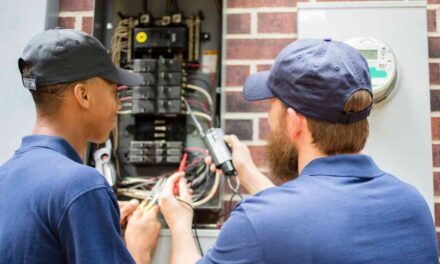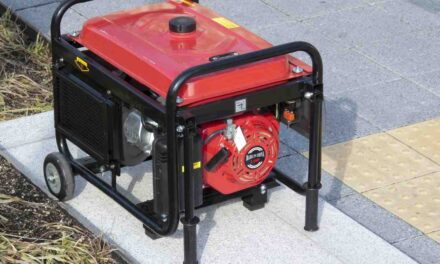
Of course, we all understand the importance of electricity in homes and that’s why we all try to provide an alternative source of power should a power failure occur. The most popular and affordable alternative source of power in homes is a portable generator.
Once you get a portable generator, you can switch it on when a power outage occurs. Many of them are easy to start and even easier to maintain. However, portable generators have one big challenge. Many of them are very noisy. They make a lot of noise while being used. That’s why they are sometimes placed far away from where they are being used.
Due to their noise, some light sleepers may not be able to get some sleep when the generator is working. So, we have been getting the same question over and over again from people who are planning to buy a generator. They have been asking – how loud is a portable generator? We will answer the question in this article right now.
In addition, we will also answer some other related frequently asked questions about generators’ noise. So, if you’re planning to purchase a generator anytime soon, you may want to read the article through. Let’s get started right away.
How Loud Is a Portable Generator? Understanding
First of all, there are two major types of generators. The first type runs on fuel, while the other type runs on an -built battery. The latter can be charged through solar panels or indoor power outlets. The latter is quiet. On the other hand, the type of generators that run on fuel is the ones that make noise.
As you already know, generators come in different sizes and models. As such, they have different noise levels, which are measured in decibel (dB). Generally, generators make about 55 – 90 dB of noise. And whatever their noise level is, it is likely to increase with age, especially if they are not properly maintained. So, to keep the noise of your generator low, it is necessary to take proper care of it. Never skip maintenance.
Generally, the safe noise threshold is 70dB or lower. Any noise level above 70dB is not considered as being safe. So, it is needless to remind you to consider the noise level of a generator before you purchase it. And if you find the noise of your generator to be too loud, there are companies that can build a muffler box around it. The box will absorb most of the sound with only little being released.
Is 65dB Loud for a Generator?
No, 65dB is cool since it is within the safe threshold. Remember we told you earlier that any noise below 70dB is considered to be within the safe threshold. So, any generator whose noise level is 65dB has earned a pass mark. You can purchase it. However, you need to bear in mind that the noise level of the generator is likely to increase with age. Also, 65dB is low but it can’t compare to an inverter generator that gives off zero noise. Inverter generators offer a 0dB noise level.
Is 70dB Loud for a Generator?
As explained above, 70dB is still within the safe threshold. So, it is not considered loud for a generator. In fact, 70dB is the marker. Any noise higher than that is considered to be too loud for a generator. So, when searching for a generator to buy, aim for the one whose noise level is 70dB or below.
Also, bear in mind that the noise of the generator may increase with time. So, if the noise level of your generator is 70dB now, in 5 years, it could be making 72dB noise.
Is 72dB Loud for a Generator?
Yes, of course, 72dB is too loud for a generator. Remember, the safe threshold is 70dB, and any figure higher than that is not safe and it’s not advisable. You may think that the difference between 70dB, the safe threshold, and 72dB is just 2dB. So, 72dB isn’t a bad idea.
Don’t let salespeople deceive you. 2dB is very loud. If generator A makes a noise of 60dB and generator B makes a noise of 70dB, it means that generator B is ten times louder than generator A because the difference in their noise levels is 10dB.
On that note, a generator that makes 72dB noise is two times louder than a generator that gives off a 70dB noise level. Hence, we’ll conclude that 72dB is too loud for a generator. Don’t let anyone tell you otherwise.
Are Portable Generators Noisy?
Yes and no. Some of them are noisy while others are not. When it comes to noise, portable generators can be divided into three categories.
- Category 1 (0dB) – Inverter generators
- Category 2 (1dB – 70dB) – Fuel generators whose noise level is within the safe threshold
- Category 3 – (above 70dB) – Fuel generators whose noise level is above the safe threshold
The first category is for generators that are super quiet. Such generators make zero noise. They are inverter generators. They don’t run on fuel. Instead, they run on an in-built battery. They can be charged by connecting them to solar panels or by plugging them into your power outlet.
The second category belongs to fuel generators whose noise level is still within the safe threshold (1db – 70dB). And the final category belongs to the generators whose noise level is above 70dB. This category is what we consider noisy portable generators.
What Makes a Generator Noisy?
A generator converts mechanical energy to electrical energy because many engine components rub against one another while it’s working. This is why a generator engine will always make noise. And when the engine begins to wear out, it will begin to make a louder noise.
How Many Decibels Is Considered Quiet for a Generator?
Based on the explanation given above, any generator whose noise level is below 70dB is considered to be quiet because its noise level is within the safe threshold. On the other hand, if the noise level is higher than 70dB, the generator is considered to be a loud one.
Final Words
We will advise you to consider the noise level of the generator before you buy it. Aim for a generator whose noise level is below 70dB. Remember, a noise level of 72dB is two times louder than a noise level of 70dB. Don’t be deceived. Also, take proper care of your generator to prevent its noise level from increasing due to wear and tear. Finally, you can create a muffler box for your generator to absorb most of its noise.






